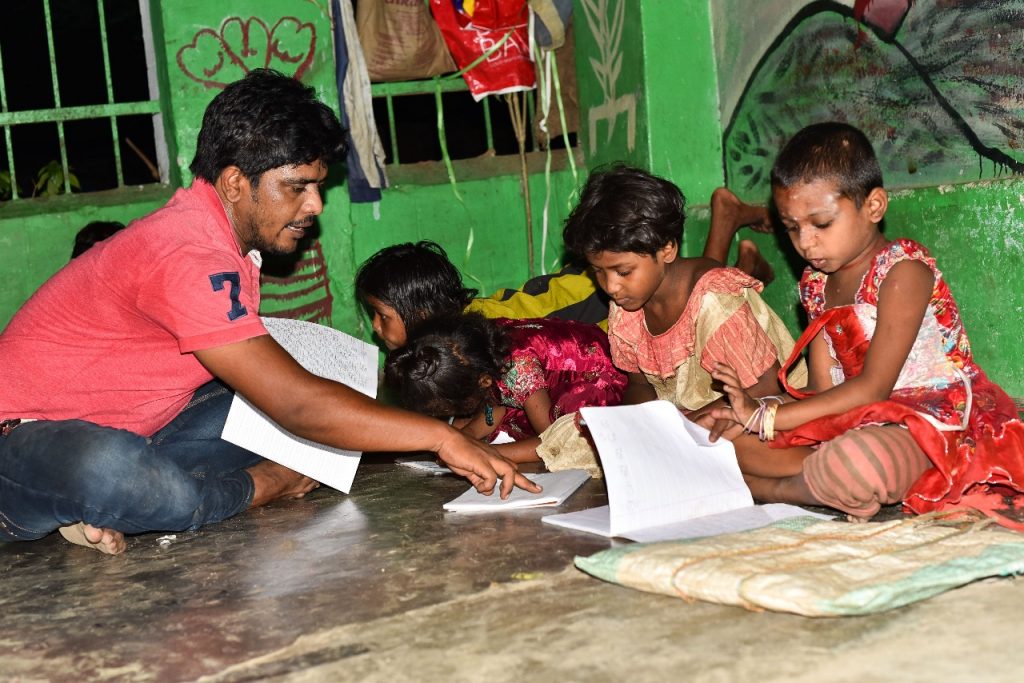Child labour is prevalent in India due to acute poverty and lack of awareness about the harmful effects, lack of access to basic education and skill training, and unemployment. The alarmingly high number of child labourers in the country definitely calls for serious action. Although we often talk against child labour, very few come forward to help the children who are being exploited. Sangram Routray has been working relentlessly for the last seven years to give victims of child labour a better life and restore their childhood.
Sangram says, “Childhood is an enjoyable time of life for learning and playing. Every child deserves a childhood that is full of love and care so that he can grow and become a responsible citizen. However, this is not the case for at least a quarter of the children in our country. Most of these children live in disadvantaged communities, where they have been bypassed by progress that has uplifted many of their peers. Many suffer because of a toxic mix of poverty and discrimination. I try my best to help these kids so that they can lead a life like other children.”
Since 2014, Sangram along with his friends has rescued 147 street children and enrolled them in government schools so that they can be part of the mainstream. However, most of these kids have been deprived of government facilities as they don’t have birth and caste certificates.
Born to Lingaraj, a farmer, and homemaker Sabita Routray, Sangram decided to help kids have a happy childhood when he was still in school. One day, in a roadside shanty, he came across a helpless child who was a victim of abuse and harassment by her parents. She was compelled by her parents to quit studies and take up odd jobs to support her family. Deeply concerned, Sangram decided to do his bit to help such children. He felt further motivated when his parents, despite a weak financial background, supported him. Finally, when it came to choosing a career, Sangram decided to pursue a post-graduate degree in social service, following which he joined Ratnakar Sahu and started working towards the betterment of children who were working on railway platforms.
From educating children who earn a living by working on railway platforms to bringing together like-minded people and setting up a voluntary organisation for street children to working with policy makers to make Bhubaneswar a child-friendly city, Sangram devotes his entire time towards helping children find a better childhood.
Recounting the initial days, Sangram says, “I had once gone to a park with a friend. After some time, a group of ragpickers and beggars, who were also minors, came to us asking for food. I asked them if they were interested in going to school and learning something so that they won’t have to do this anymore. They showed their eagerness but also said that their parents made them work to earn money. We went to meet their parents. It was very difficult to convince them. We were even threatened on occasions as they said that we were trying to brainwash the children. However, our repeated efforts yielded results and they were convinced. This further inspired me to carry on with my work. I drew inspiration from every homeless, hapless child I encountered, who was being exploited either by his family or society,” he says.
Sangram also provides vocational training courses to these children so that they can earn in their free time and help their families. “This way, they are getting educated and earning at the same time,” he adds.
Sangram is also concerned that many of these children get addicted to drugs and other intoxicants. “Dendrite consumption (glue sniffing) by children in Odisha is on the rise. It’s not only affecting their physical but also their mental health. They indulge in this practice as they find it helpful to suppress hunger and cold. But substance abuse can result in neurological problems, kidney and liver ailments and even death. I want to make Bhubaneswar a safe city for children,” he says.
Recalling another incident, he says, “Jhilismita (name changed) a 17-year old girl from the state capital, was forced to work in a Sambalpur-based opera troupe after being trafficked by a middleman. She was a good painter. Acting on a tip-off, we rescued her with the help of the railway police. After being rescued, she narrated her ordeal and how her parents forced her to work in a jatra troupe to eke out a living although she wanted to study. We enrolled her in a school and now she is studying in Class VIII. Today she counsels other kids of her slum.”
Sangram has been felicitated with the Mu Volunteer award by UNICEF. That apart, he has also been felicitated on the occasion of International Day against Drug Abuse and Illicit Trafficking.
RASHMI REKHA DAS, OP
